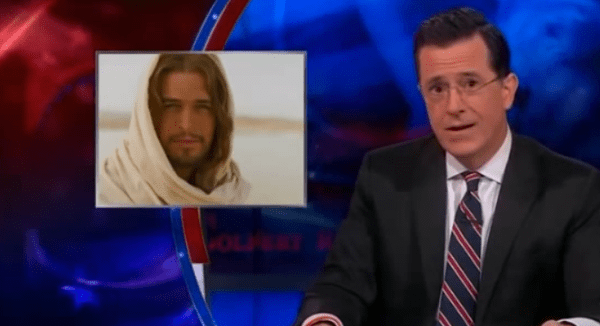 The following is a sermon I preached on Easter at Clackamas United Church of Christ, near Portland, Oregon. The text was John 1:1-5 and John 20:1-18. The video recording of the sermon is below, along with the text.
The following is a sermon I preached on Easter at Clackamas United Church of Christ, near Portland, Oregon. The text was John 1:1-5 and John 20:1-18. The video recording of the sermon is below, along with the text.
The following is a sermon I preached on Easter at Clackamas United Church of Christ, near Portland, Oregon. The text was Luke 24:36-48. The video recording of the sermon is below, along with the text.
American culture celebrates Easter on one day during the year. But for us, Easter isn’t just a day. It’s a season. And the Easter season lasts 7 weeks.
But even that’s not quite right. Easter is much more than a season. It’s a way of life. The Resurrection Story was so influential for the early Jewish followers of Christ that they made a radical change. They used to worship on the seventh day of the week, which was Saturday. According to the book of Exodus, this was the day that was holy and set apart for worship. But the resurrection caused the followers of Christ to disregard this command found in scripture. The Resurrection was such an important event, that it changed everything, including their day of worship. So they changed it to Sunday, the first day of the week, the day that Jesus resurrected, so that they could remind themselves throughout the year that they were a people formed by Resurrection.
They were a Resurrection people. And we are a Resurrection people, called to live into the Easter story. And that story has a radical claim. The death of Good Friday doesn’t have the last word. The powers of Empire and violence do not have the last word. Resurrection has the last word. God’s love has the last word because in the end, Love wins.
But the disciples had to go through Good Friday to get to Easter Sunday. They experienced the violent Empire murdering their leader, Jesus. On Good Friday, they went through despair at the hands of Roman power. Little did they know then that on Good Friday they would be shown an even higher power than the Roman Empire. Little did they know that soon God was going to raise Jesus from the dead and reveal that the power of Rome and the power of death do not have the final say.
But that hope was almost impossible for the disciples to see on Good Friday and Holy Saturday. Instead, they lived in fear of the Roman Empire and they lived in serious doubt of the last three years of their lives. They gave those three years to following Jesus. And now their leader was dead. They lost their sense of identity. They were disciples of Jesus. Who were they now? And what was Rome going to do to them next?
The disciples learned that sometimes you have to go through Good Friday to get to Easter Sunday. And we are learning that today. Many of us are going through a Good Friday moment. We know that life is not permanent. Some of us are reaching the age where death seems near. Some of us are taking care of family members. Others are facing a potential job loss or the loss of friends. And the media is constantly telling us that things are going downhill in our country and we should be very worried. The anxiety about potential loss and the erosion of our country is a Good Friday moment that for many of us is almost too difficult to bear. And it leads us to ask the same questions the disciples asked, Who are we? What are we doing here? What’s the point of it all? Where do we find hope?
When confronted with these kinds of heavy existential question about life and death and suffering and hope, I’ve discovered that it’s always important to ask yourself one essential question: Has Stephen Colbert already answered this?
In a speech delivered to graduating students at Northwestern University, Colbert said that after he graduated from Northwestern University, he did improvisation at Chicago’s famous Second City. He stated that improv taught him something important about life,
Now there are very few rules to improv, but one of the things I was taught very early on is that you are not the most important person in the scene. Everybody else is. And if everybody else is more important than you are, you will naturally pay attention to them and serve them. But the good news is that you are in the scene, too. So hopefully to them, you are the most important person and they will serve you. No one is leading. You are all following the follower. Serving the servant. You cannot win in improv. And life is an improvisation. You have no idea what is going to happen next. And you are mostly just yanking ideas out of your [bottom] as you go along. And like improv, you cannot win your life … In my experience, you will truly serve only what you love. Because service is love made visible. If you love friends, you will serve your friends. If you love community, you will serve your community. If you love money, you will serve your money. And if you love only yourself, you will serve only yourself, and you will have only yourself. So no “winning.” Instead, try to love others and serve others, and hopefully find those who will love and serve you in return.”
Life is improv. You never know what is going to happen next. We all know this to be true. And here’s what else improv teaches us about live. We are not meant to be isolated individuals. In fact, our identity is dependent upon one another. I am not the most important person in this scene called life. You are. And you are. And you are. We’re all in this scene together and we all depend on one another.
This improv of life was true for the disciples, too. There they were together on that morning when all seemed hopeless, but soon hope emerged right in front of them. It was the biggest improvisational moment in human history. Jesus was murdered a few days earlier, and now he appeared in their midst. This same Jesus whom the disciples abandoned and betrayed to the cross just a few days earlier, now stood in their midst. And what did Jesus say to them in that moment?
If Jesus were like me, he would have brought up that whole desertion thing at the cross. He would have said. “Hey you jerks! I trusted you, but you abandoned me in my time of need. I’m going to start over with some new people because you are obviously hopeless.”
But that would have been the old way of doing things. Instead, Jesus improvised something radically new. He said, “Peace be with you.” It’s interesting that all the Gospels tell some version of the Resurrection story. And they all tell it slightly differently. But they are consistent on this one fact. Jesus did not come back like a ghost to haunt his disciples for abandoning him in his time of need. He came back to offer them peace. He came back to offer them forgiveness. And the amazing thing about this forgiveness is that it is universal. The resurrected Jesus reveals that God has no need for revenge and no need to punish.
Rather, for some reason, the resurrected Jesus needs to eat. So, he says, “Hey guys. Do you have any fish?”
Some claim that Jesus ate the fish to prove that his resurrection was physical. And that might be part of the reason. But I think there’s more to it than that. Throughout his ministry, Jesus taught his disciples that there mission was to love and serve others. Like a lifelong improv session, Jesus taught them they were not the most important thing.
Love is the most important thing.
Forgiveness is the most important thing.
Service is the most important thing.
Hope is the most important thing.
Relationships are the most important thing.
I think it’s astonishing that the resurrected Jesus, here in all of his power and glory, asks his disciples to serve him by giving him some fish. He is dependent upon them, and they are dependent upon him. You see, this is so much more than a divine resurrection trick to prove something. It’s a reminder about their divine mission. It’s a reminder that sometimes life brings fear and anxiety, but in the midst of it all, they are still in this improv of life together. It’s a reminder that their mission is not to gain power against others, but to move through the world in nonviolence, forgiveness, and service.
And this is our mission, too. This is the new life of Resurrection, and it is like improv. It calls us to a new identity.
What does this new identity look like? Well, the best form of leadership I know is, hey, I’ll go first, so I’ll tell you what it has looked like for me. I have someone in my life who often makes me miserable. Fortunately, it’s not any of you, but maybe you have someone in your life like this. Or maybe you are this person for someone else! Anyway, there are times when this person says things that just hurt. Their barbs were like deep paper cuts. They were personal insults. It was almost as if this person knew exactly what to say to push my buttons.
And I started thinking, well, if this person is making my life miserable, I’m going to make their life miserable! And so I waited for moments when I could make digs and subtle insults back. I justified my behavior by thinking maybe this person will realize how painful it is and stop being so mean.
But it never worked. In fact, my behavior just made me feel worse. After I tried to make this person’s life miserable, I became all the more miserable. I don’t know if my digs had any impact on this person, but they had an impact on me. I felt like I was turning into a big jerk, because I was. I was losing my soul and began to hate myself when I was around this person. It was like I was dying inside.
I was living the old life and I needed a resurrection. So I decided to change and do some creative improv. Part of that change was to create intentional barriers and separation between me and this person. But even more importantly, I stopped taking this person so seriously. And I began to take ownership of my buttons. I realized that I was in control of them, not this person. This person began to have less and less power over me. She no longer “made” me feel a certain way. And instead of responding with bitterness, I began to respond with some improv – either with light humor, or by simply walking to another room.
For me, the resurrected life is a work in progress. I constantly find myself going back to the old ways. And when I do, I meet the resurrected Jesus. In his eternal patience, Jesus comes to me in unexpected ways, but he always says, “Adam, peace be with you. Let’s try something new. Let’s try some forgiveness. Let’s try some improv.”
So no matter what we’re going through, may we hear the voice of the resurrected Jesus say to us, “Peace be with you.”
May we do some holy improv.
And may we participate in the resurrected life now and forever. Amen.
Image: Screenshot from YouTube.
Stay in the loop! Like Teaching Nonviolent Atonement on Facebook!











